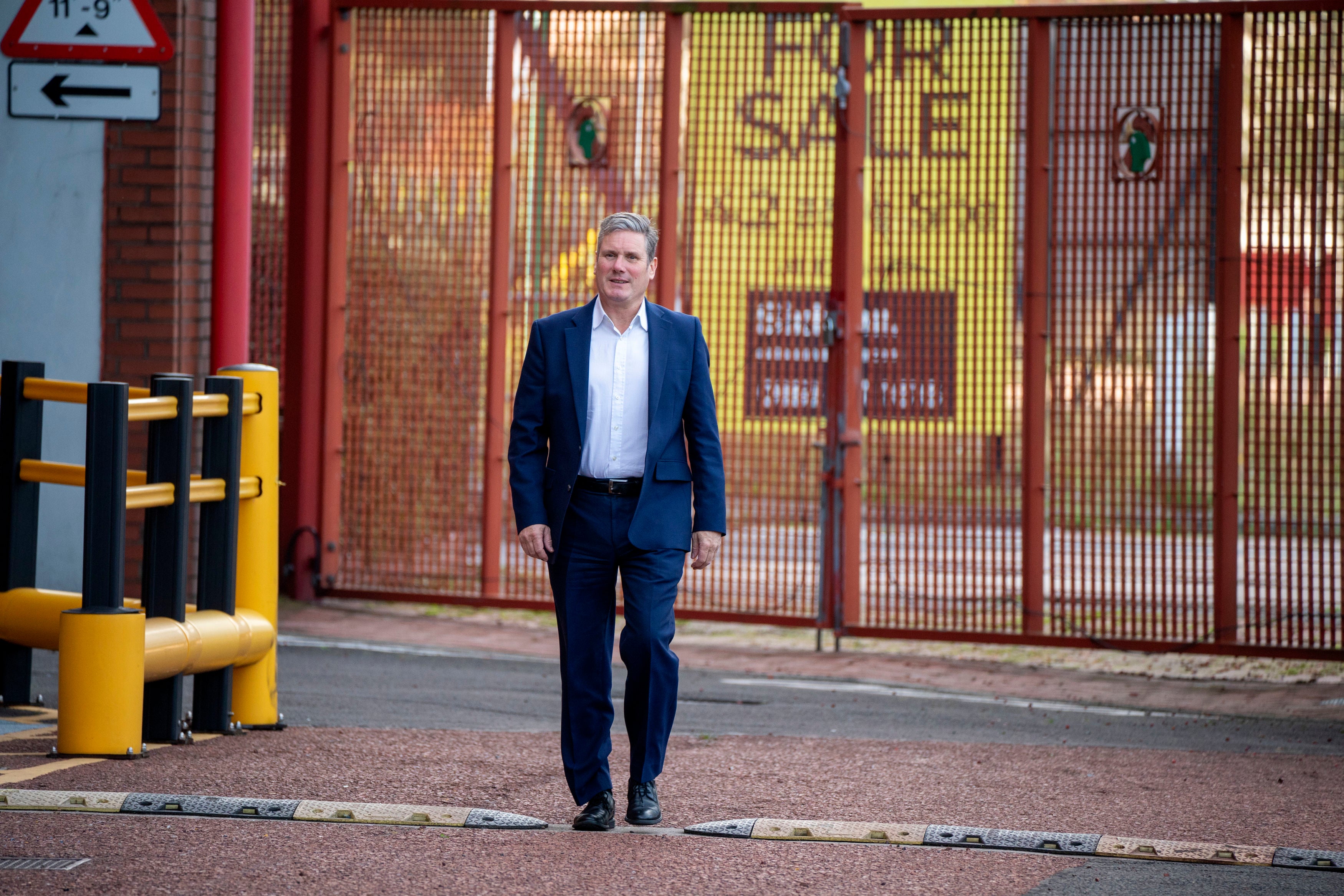Why is Gordon Brown leading on the cost of living – and not Keir Starmer?
Editorial: The democratic duty of the leader of the opposition is to sharpen the government’s response to the energy crisis

Sir Keir Starmer has already proved his worth in this energy crisis, dictating government policy from the opposition benches in the House of Commons. He shamed Boris Johnson and Rishi Sunak into legislating to impose a windfall tax on the oil and gas companies, which will help to pay for what Liz Truss, Mr Sunak’s rival for the succession, calls “handouts” to protect people from soaring gas and electricity bills.
So the Labour leader can be forgiven for missing his cue for the next stage of the response to the crisis. All politicians are entitled to their holidays, and indeed in normal times The Independent would argue that they should take more of them because then they are likely to make better decisions. But now is not a good time to be away, and it is just as well that Sir Keir is back on Friday, when he is expected to “start to” set out Labour’s plans for dealing with the cost of living crisis.
No doubt the Labour leader is grateful to Gordon Brown, his predecessor, who has chosen to interrupt the supporters of the Conservative leadership candidates insulting each other in public to go on a freelance mission to explain that crises “don’t take holidays”. Mr Brown may be right, and he is more right about image and public relations than about the substance.
The situation is serious but not yet time critical. Domestic energy bills are scheduled to rise on 1 October, and the precise amount of the increase, set by Ofcom, will not be announced until 26 August. Mr Brown is right that decisions need to be taken now, and preparations made, for example to allow changes to state benefits. But the problem with Sir Keir’s delay in making his announcements is more to do with the appearance of lagging behind events than with the reality.
More important is to get the policy right. Sir Keir has the advantage now of the main options having been set out by his rivals. He has two clear examples of wrong approaches. One is the approach taken, or at least hinted at, by Ms Truss, the candidate most likely to be facing Sir Keir across the despatch box on 6 September. She has implied that tax cuts are the answer, including scrapping the green levies on energy bills, worth about £150 a year, and possibly getting rid of the VAT on those bills as well, worth a similar amount – a change that Labour and Mr Sunak have already proposed as a temporary measure.
Even if she cut both those taxes, that would not compensate for the rise in bills in October, which are expected to be an average of £500 more than when Mr Sunak announced his measure to help with the cost of living in May. Her other tax cut, the reversal of the national insurance rise (which was partially reversed by Mr Sunak in July), would not help pensioners and people on benefits who do not pay national insurance contributions.
The second approach has been advocated by Sir Ed Davey, the Liberal Democrat leader, who has suggested holding gas and electricity prices at their current level, by means of government subsidy direct to the suppliers. This would certainly be “radical”, but it would also be expensive, and it suffers from the same defect as Ms Truss’s plan, which is that the benefit would go overwhelmingly to the better-off, who tend to live in larger homes and to use more energy.
Sir Keir needs to get behind the third way, and broadly support Mr Sunak, who is, depressingly, losing the Conservative leadership contest partly because he is advocating a targeted, compassionate policy. Mr Sunak did the right thing when he was chancellor, using the benefits system to deliver direct cash help to those who need it most.
To keep up to speed with all the latest opinions and comment, sign up to our free weekly Voices Dispatches newsletter by clicking here
Labour should be putting pressure on the government above all to increase those payments to match the higher bills in October. It is the democratic duty of the leader of the opposition to sharpen the government’s response to the energy crisis, and Sir Keir needs to maximise the pressure on Ms Truss, if she emerges the winner, to abandon her campaign rhetoric and to do the right thing the moment the Conservative ballot closes.
There are other important things that need to be done, as Mr Brown points out. Plans are needed now to save energy during the winter and if necessary to ration it; international cooperation needs to be intensified.
But the most important thing is to agree on further cash help with energy bills, skewed in favour of those on lower incomes. Sir Keir must now make that case, and explain how the windfall tax and the current fiscal headroom make it affordable in a way that Ms Truss’s misdirected permanent tax cuts are not.



Join our commenting forum
Join thought-provoking conversations, follow other Independent readers and see their replies
Comments